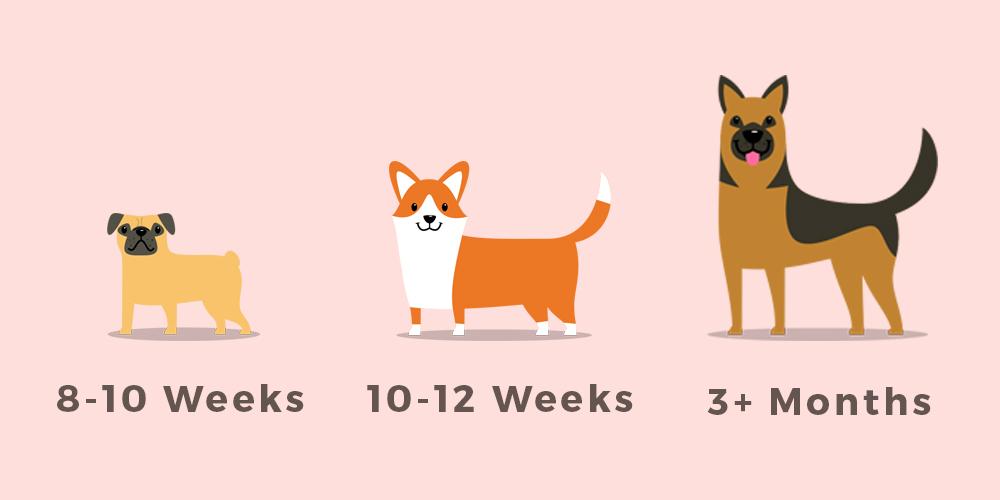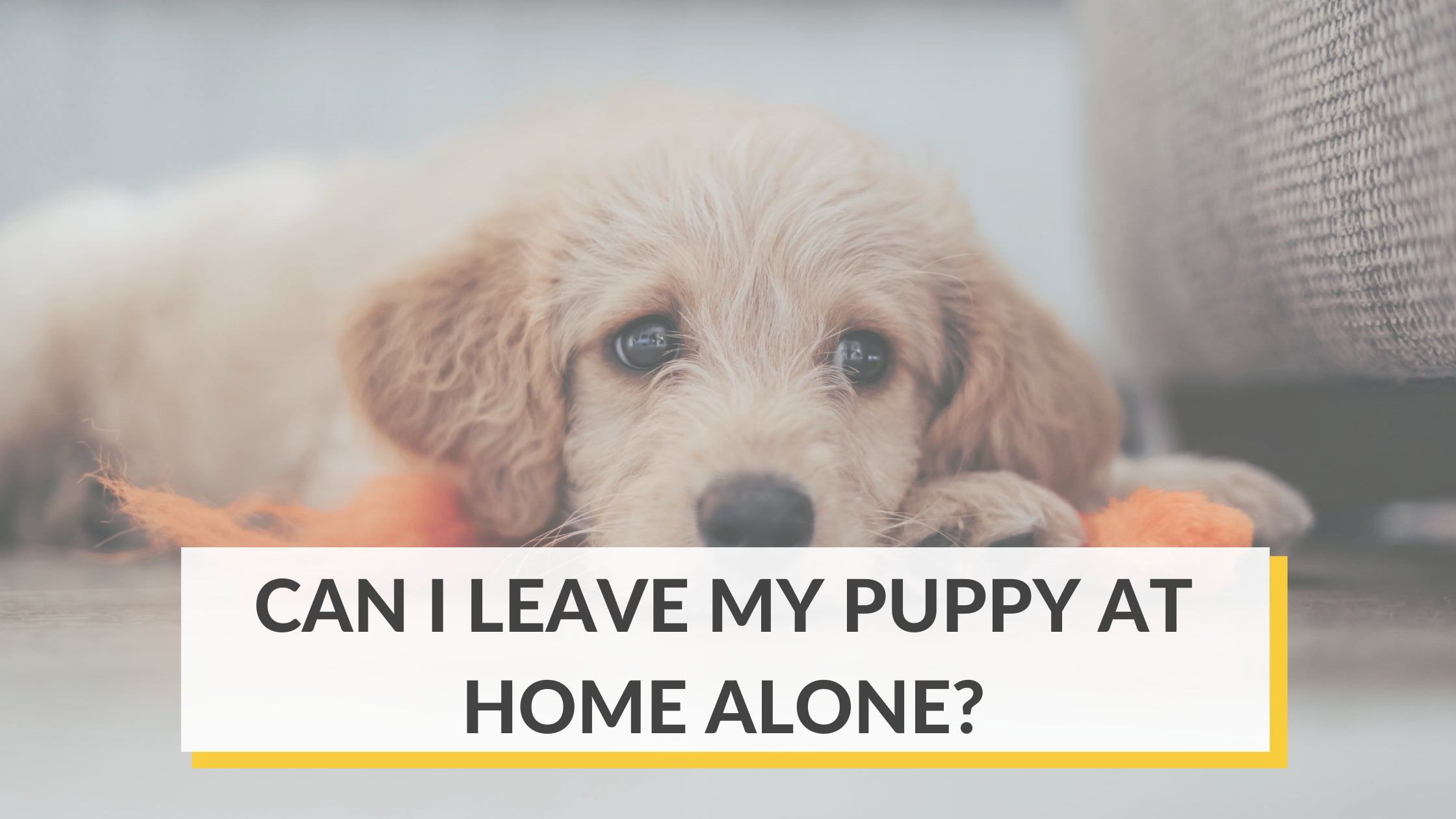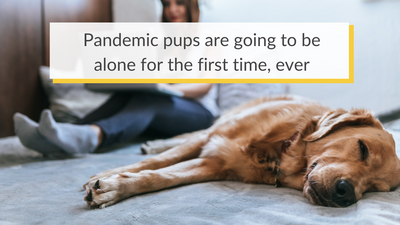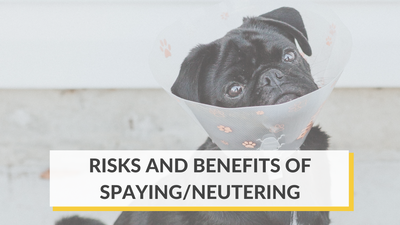It’s often that we hear people compare the experience of raising a puppy with raising a baby. While the experience might differ, most puppy owners can assure you that raising a puppy is definitely a job that will test your patience. When left unchecked, your puppy can be a destruction machine that will chew up everything from your new sneakers to the trash bags by the kitchen. Puppies need constant attention from their owners to play, run, and cuddle. Not to mention their needs for walks and baths.
While you won’t need to feed them every few hours or change their diapers like a baby, your puppy will take up a large portion of your time. However, to keep your dog safe and happy with delicious treats and fun toys, you’ll need to go to work and earn money. This brings us to the ultimate question: can I leave my puppy at home alone?
Three Stages of Puppy Development
Before you even consider taking on a puppy or leaving your new furry family member at home alone, you need to realize that not all puppies are the same. Just like the young of any species, they have different stages of development, and these stages can affect when they’re ready to be left on their own:
-
8-10 weeks old.
These puppies are babies and might be newly weaned. You cannot leave them at home alone or for extended periods of time. At this age, your furbaby needs lots of companionship and will get very distressed if you leave them for too long. In addition, your pup will not understand the meaning of potty training yet so you will need to closely monitor and take them out for potty breaks. We recommend that you take some time off work or have someone care for your new pup when you’re away.
-
10-12 weeks old.
Your furbaby is getting bigger, but at this age may still be having accidents and cannot be left alone for hours. Socialization is still something you need to address, and you will need to make sure your puppy is let out to use the washroom or has some place to go inside. At this age, pups are still exploring the world around them, so it’s important that if they’re being left at home alone, they are monitored and have someone helping them if needed.
-
3+ Months old
At this age, puppies can go longer without having to go to the washroom. However, they may still bark when you’re away and as they get larger, they may be biting more or be leaping out of any puppy enclosure you’ve set up at home! Monitoring remains important for these reasons.

Keep in mind that age is not the only factor to consider. If the puppy has been abused or abandoned before, he or she may have a hard time accepting new hoomans. If you’re just introducing a puppy to your home for the first time, there is an adjustment period to consider. Lastly, some breeds are just more nervous than others and may do worse when left alone for hours every day. For instance, labradors, terriers may experience more separation anxiety than other breeds.
Related Post: Who's a Good Dog! 9 Best "Home Alone" Dog Breeds
We understand that working from home is not a viable solution for everyone and you don’t always get to take time off for your new furbaby. That’s why we compiled a short list of tips for new pawrents to raise a puppy while working full time.
With a puppy in the house, you will need to adjust your lifestyle to the attention demands.
5 tips for new puppy pawrents
1. Create a puppy plan
Learning how to raise a puppy when you work is a big undertaking, so write down a concrete plan for yourself before you get your dog. Before you start, address some key questions like how you can puppy-proof your home, and what you can do in case of emergencies. Consider what needs to happen, hour by hour, every minute you’re away. Anticipate and create contingency as well as emergency plans so you know exactly what to do if your pup is distressed, sick or not adapting well.
2. Set a regular routine
Dogs of all ages like a predictable schedule and puppies in particular need stability. The fewer surprises, the better. Try to keep mealtimes, walks and bedtime consistent, and try to drop in at least once a day while you’re working. You also may want to consider investing in a system like Furbo; it’s popular with working puppy parents because it allows users to see, talk, and even throw an occasional treat for their furry friend.
3. Make some adjustments to your social life
You’re also going to have to make some sacrifices. If you work full time, you will need to make more time to spend at home or with your puppy. It may mean giving up some social time or even vacations while you and your furry family member adjust to each other and it may mean spending less time on errands and other tasks you can’t complete with your dog, so you have more time to bond.

4. Call in the Pros
Make sure you know the name of a reputable dog sitter or kennel. While this is an expensive option for every day at work, having someone to call is important if you need to travel for work or will be putting in extra hours during the holidays. Also be sure to get your puppy to the vet and a trainer as soon as possible. Your vet can offer important insight into whether your furbaby is ready to be left alone and whether there are any medical conditions which could make alone time more dangerous. A trainer can help you start training your pup, so they can start learning all those good habits to make them less scared of being alone!
5. Ask for help
Don’t be embarrassed to get other people involved in raising your pup. Recruit friends, family and neighbors to help out by dropping by or by letting you know when your pup is barking at home. Raising a pup is a big job, so you’re going to need some help!

Getting a puppy will be both an exciting and exhausting experience. However, you shouldn’t stress it too much because there are many work-around solutions that will help your role as a pawrent. Hopefully this article has shown some insight to how you can better adjust your lifestyle to your new pup! Work smarter, not harder. Your game plan should keep both you and your pup safe and happy.












